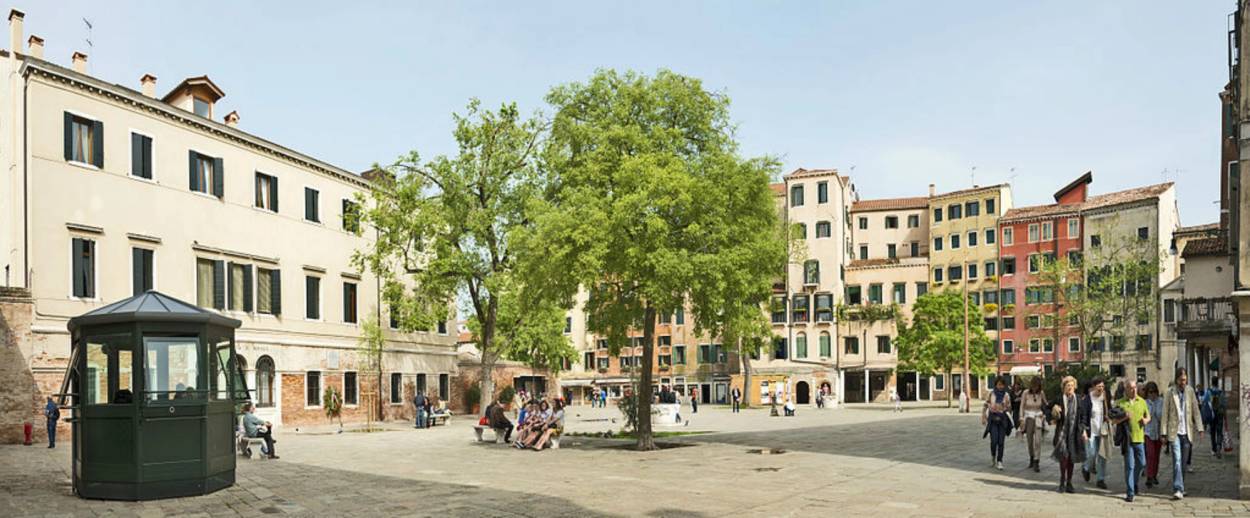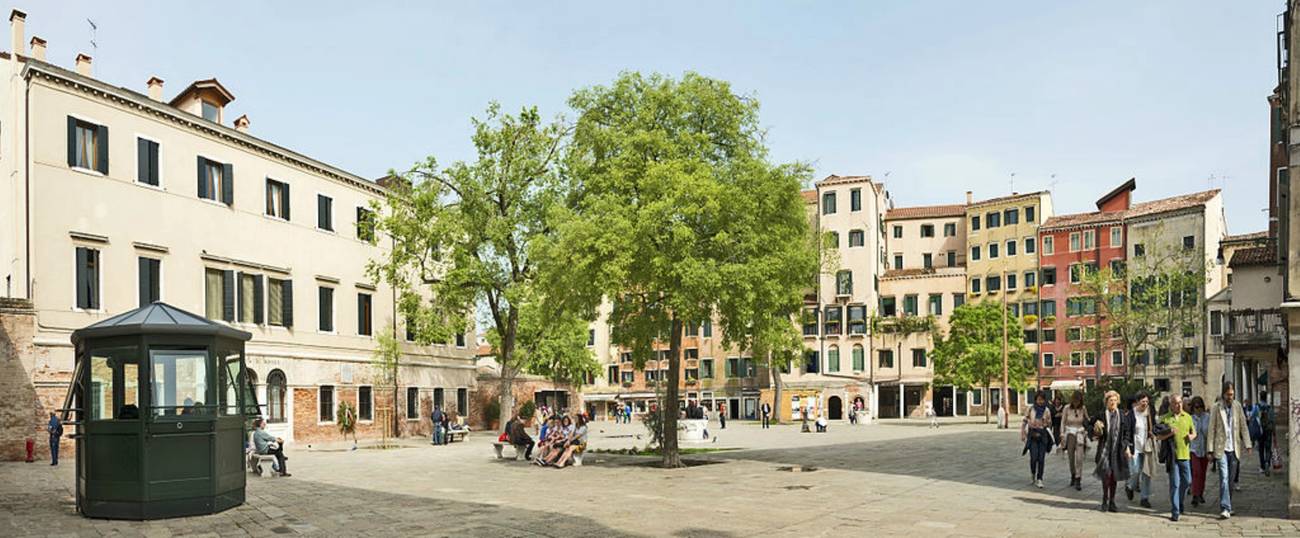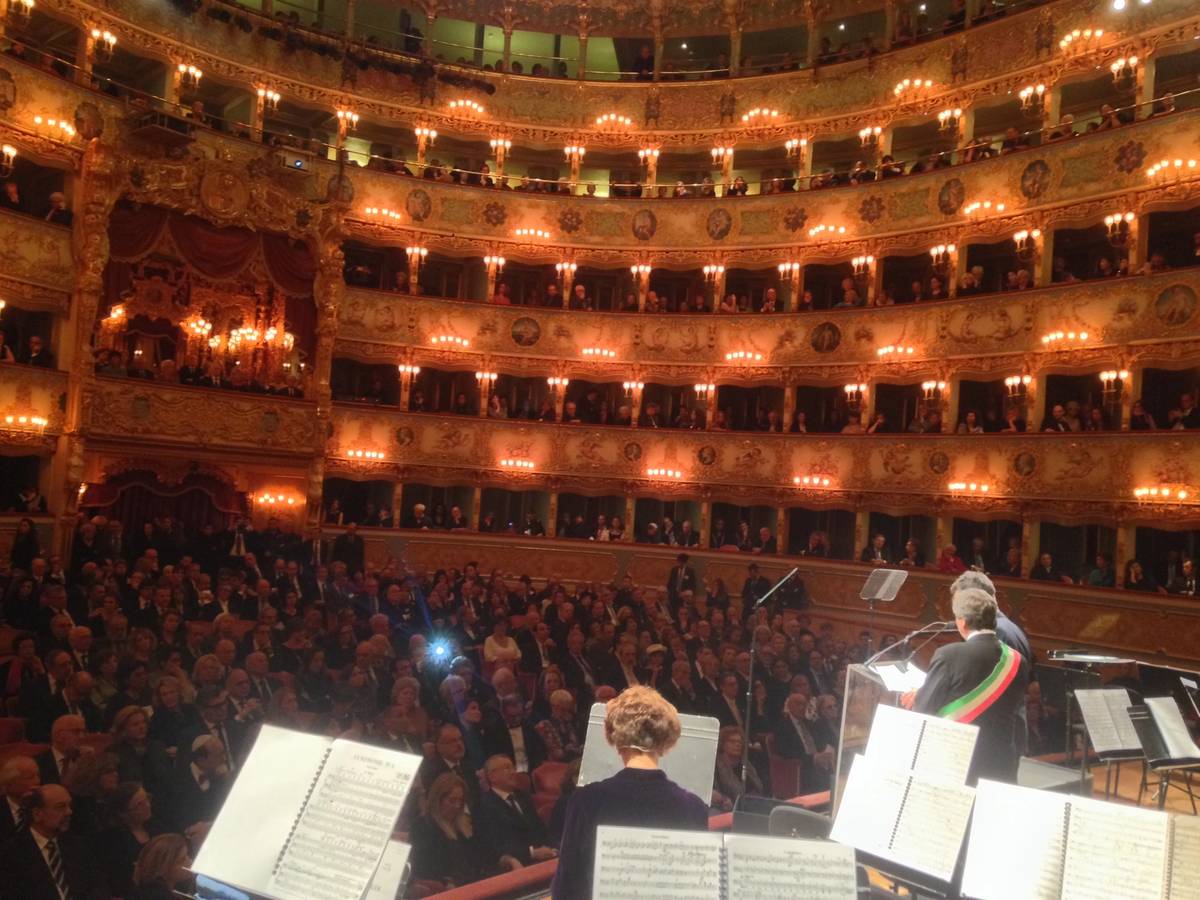Ceremony in Venice Marks the 500th Anniversary of the First Jewish Ghetto
‘History is not always a stroll down memory lane’




On Tuesday night, at La Fenice theater in Venice, Italy, the world’s first ghetto was remembered 500 years after a 1516 decree from the Venetian Senate confined the city’s 700 Jews to a small gated island on the periphery of the lagoon. The event, said historian Simon Schama during his keynote speech, was a time to reflect on the ghetto’s dual role in both ostracizing and uniting Jews. “Our commemoration should be weighing in the balance of rejoicing and mourning,” he said. “History is not always a stroll down memory lane.”
During the ceremony, an orchestra, conducted by Israel-born Omer Meir Wellber, played Gustav Mahler’s Symphony No. 1 in D major, which washed over a number of luminaries in attendance, including Venetian mayor Luigi Brugnaro.

President of the Jewish Community of Venice Paolo Gnignati said the anniversary was an opportunity to “emphasize the capacity and steadfastness of a group that, in spite of adverse conditions, and against all reasonable expectations, succeeded in making the ghetto a place where Jewish tradition could grow.” He noted the ghetto’s five extant synagogues, the first printed edition of the Talmud, and the capacity to “to indomitably maintain [its] own strong and independent identity over the centuries, fostering cultural exchanges and influencing the surrounding society.”
It was vital to “remember all of this because of what is happening today in Europe,” added Ronald Lauder, the president of the World Jewish Congress. “Jews learned what happened when the world is silent and we learned it the hard way. When we face the past with complete honesty we actually create a much better future.”
Schama echoed this sentiment, saying it was “incumbent on Jews and non-Jews not to be silent” particularly in the wake of the Brussels attacks earlier this month that killed 35 people.
“But it is not enough to denounce fanaticism,” he said. “We have to educate. Where better than this commemoration in this city to start?”
The opening ceremony marks the beginning of a yearlong cultural calendar including the first performance of The Merchant of Venice in the ghetto itself, featuring Associate Justice of the Supreme Court of the United States Ruth Bader Ginsburg, an exhibition at the Doge’s palace, as well as literary panels, conferences, and other events.
Previous: A Jewish Ghetto Worth Saving
Ruth Bader Ginsburg Will Make a Cameo in a Production of ‘The Merchant of Venice’
Livia Albeck-Ripka is an Australian freelance journalist currently living in Europe, focusing on society and the environment. She writes for publications including Quartz, VICE and Dumbo Feather Magazine and was previously a fellow at Fabrica Research Centre. You can find Livia on twitter here.